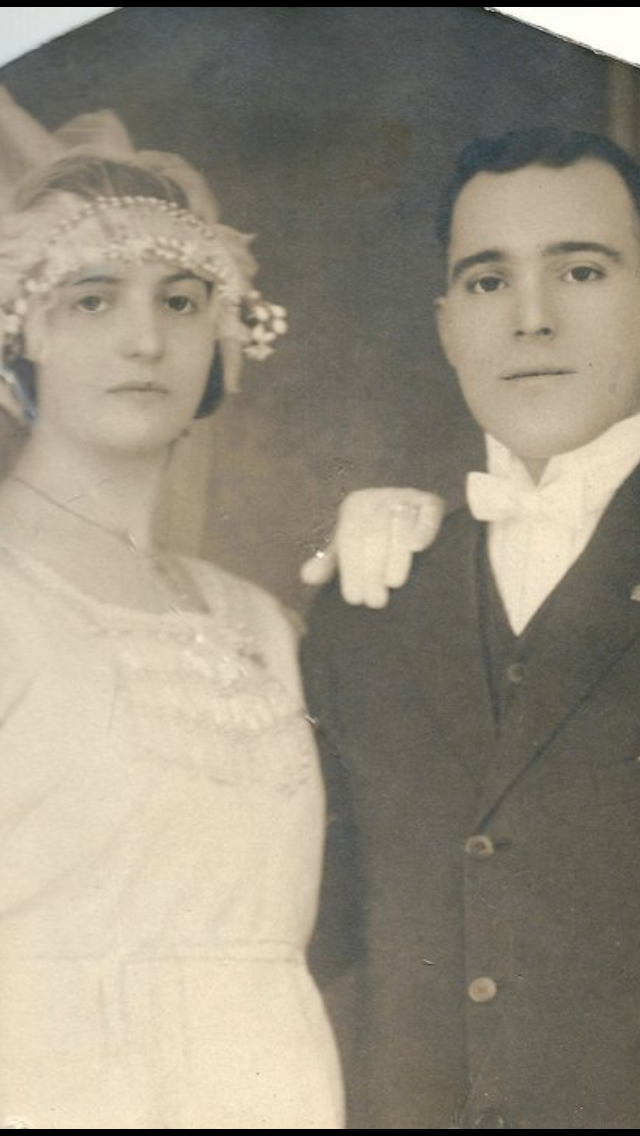Villanella 1:
Tip the
Pallbearers
Tip the pallbearers and the grave
diggers and the priest.
Away from the grave walk last
Hallelujah soul's released
Bow your head when the casket is
lowered then go to the feast
Drink to the dead! To all who have
passed!
Tip the pallbearers and the grave
diggers and the priest.
Laugh with the living as if your
days will never cease
Answer all the childrens’
questions whatever they ask
Hallelujah soul's released
Laugh for the skeletons wearing
their favorite hats in peace
Pray for those left standing their
hearts’ pain vast
Tip the pallbearers and the grave
diggers and the priest.
Nights say thank you, I’m sorry, I
love you, forgive me please
Applaud setting suns, free souls
paint pastel constrast
Hallelujah souls released
Head impetuous into the wind,
pursue caprice
Laugh. Cry. Love. Breathe
deep to the last.
Tip the pallbearers and the grave
diggers and the priest.
Hallelujah souls released
copyright 2013
Annie Rachele Lanzillotto
published in
2014 Philadelphia Poets
INSIDE SCOOP:
It must have been in November of 2013, just a few months ago, that I got up onto the stage at Cornelia Street Cafe and read this villanella. It is the first villanella I'd ever written, and was based on an experience I had at my Aunt Laura's burial. She was my father's sister. Had the most calming voice and presence in all the extended family, and the most sanity, in a family plagued by hypochondrias, manic depression, paranoid schizophrenia, hyper religiosity - it's own form of neurosis. Aunt Laura was the ballast. She gave birth to nine children, and her one baby who died at birth, just minutes after he was born, was all the talk at her funeral. "Now she is holding Charles" I heard from my cousins.
In November, to a packed crowd, I got up to walk to the stage when my name was called on the open mic list. In the audience was my friend Joanna who's husband Billy had just passed away. Billy and I had been mystical buddies. He was exactly my mother's age. They were born hours apart in 1926 in the Bronx, within blocks of each other. Both home births. One day when I popped in on Joanna and Billy to say hi - - Joanna said "Billy isn't dressed." I said "Tell him not to bother." I took the elevator up to their apartment, and stripped down to my underwear and socks. Joanna got out her camera. As the two of us, Bronx survivors in many senses of the word, posed with Spaldeens, naked enough, on the couch. Billy and I both were celebrators of life.
And so as I walked to the stage, on this first night that Joanna had come out socially with me with us since Billy's passing… and I heard the overwhelming cheers of the crowd, something happened. I said, "The way you people are cheering, you'd think I was gonna take off my clothes." "Do it!" someone shouted back. And others followed. The crowd got raucous and bated me. I stepped up on stage and asked "Do you want nudity or poetry" "Both" came the yells.
Getting naked is absolutely nothing for me. I've been stripping for doctors since I was 18 with Hodgkins' Disease. I got through the "dehumanizing" stages. Now it is quite natural. My clothes come off easier than a banana's. The harder thing for me personally is dressing nice and grooming.
I delivered this poem. I dropped my pants. I said the lines. "Hallelujah souls released." I felt quite warm with the stage lights hitting my bare skin, being naked. I left my socks on. And delivering this poem, so connected to death, and to living life while we have this brief chance.







